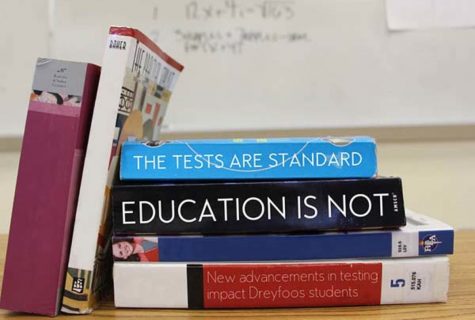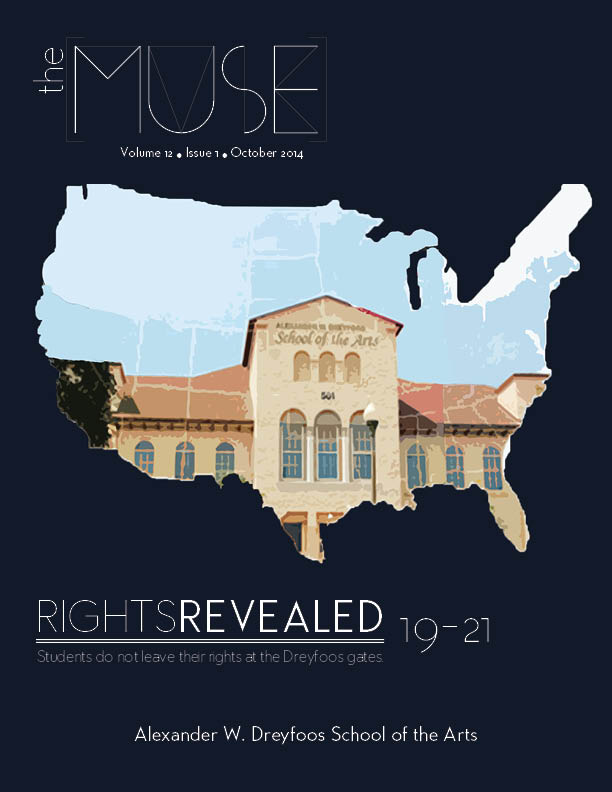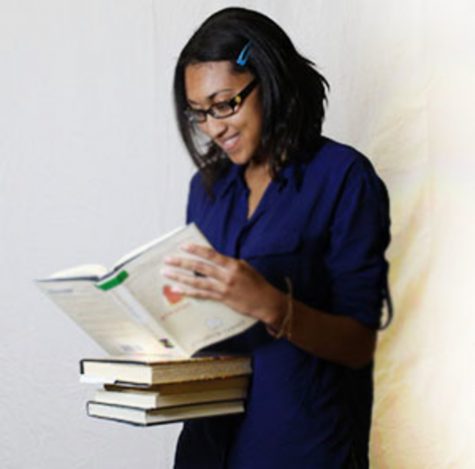Textbooks are slammed open as students flip through the pages. They grimace as they rummage through bags for their flash cards. Paper cuts line the palms of their hands as they clench pencils like a lifeline, attempting what must be their fourth essay that day.
The teachers are in equal disarray as they struggle to cram in one more lesson before the FSA (Florida Standards Assessment) falls upon them – but there is too much to learn and too little time to teach it.
This year marks the start of a new era of testing with new standards and new exams, and it seems that only a few are prepared.
Testing v. The District
“We all have a serious concern about appropriate implementation and appropriate assessment of students,” said Cheryl Alligood, former Chief Academic Officer of the Palm Beach County School District.
The Palm Beach County School District has been hit by wave after wave of new standards in testing, starting with the replacement of the Florida Comprehension Assessment Test (FCAT) with the Florida Standards Assessment (FSA) as mandated by the state. Another state mandate is the inclusion of end of course exams (EOCs) for every available course, including art courses. This means around 800 tests are planned for integration into the curriculum, 41 of which are already in development.
The district has met these new standards with apprehension. On Sept. 17, it passed a resolution calling for the state to slow down the testing process and give the schools a three-year transition period. As it is, schools have one year to teach students how to pass a test the FSA, a test the teachers themselves are not accustomed to. The resolution also calls for a reduction in testing and asks that test scores not be used to evaluate teachers.
The resolution stated, “It is widely recognized that standardized testing is an inadequate, limited and often unreliable measure of both student learning and educator effectiveness.”
The district aims to alleviate this burden by giving the teachers more time to familiarize themselves with the new expectations.
“[The resolution’s purpose was] to ask the state to pause or put a halt on implementation of the new tests so that we have enough time to truly get all our materials, information, and properly train our teachers,” Ms. Alligood said. “It’s coming on a very short timeline.”
Testing v. The Students
The students who have to sit through these exams have mixed feelings over the exam material, their usage, and the preparation required for each test. With several standardized exams to worry about, such as AP exams, the PSAT, the SAT, the ACT, the FSA and EOCs, and other forms of testing like juries and final exams, it can be stressful for any student.
Twenty-five percent of students believe testing is required to measure student proficiency. Thirty percent believe EOCs for all courses, including art classes, are necessary.
“Testing may seem unnecessary, but it is the only way for colleges and universities to gauge a student’s proficiency and capabilities,” strings junior Aaron Shulman said.
Not all students share this outlook on testing with EOCs in art areas.
“An arts EOC will take away from the passion and time students have to practice their art,” digital media junior Alexandria Glynn said. “Instead of working on our trade we will be forced to study redundant technical information for a test.”
All incoming freshmen with adequate FCAT scores are automatically sorted into AP Human Geography. Because of this, AP Human Geography is almost a “default” course – unless disputed, students are automatically placed into it. The majority of Dreyfoos students took AP Human Geography as their first AP course. Forty-six percent of students believe AP Human Geography should be a required course to incoming freshmen.
“Whether or not all freshmen should be required to take it, I believe it’s definitely one of the easiest AP courses so it’s a good way to get used to the AP style,” band junior Victoria Rossi said.
The use of the FSA over the FCAT has many juniors upset –whereas previously students were finished with the FCAT by the 11th grade, juniors will be required to take the FSA.
“I think it’s unfair because throughout my entire educational career I was told that the last writing test I’d ever have to take would be in the tenth grade,” Rossi said. “However, after my big sigh of [relief] last semester, I come into this school year finding out [the rules had changed and I would] still have to take another [standardized test].”
Many students find issues with the use of state standardized testing and what little meaning they have to the student’s future, specifically in the case of college applications.
In contrast, students worry about the importance of national tests such as the ACT and SAT, and how they affect their college prospects. Of the ACT, SAT, EOC, and FSA, 56 percent of students say the SAT is the exam they take the most seriously.
“I think the SAT is better than [other] standardized testing because colleges actually care about that test,” communications senior Stephan Gawlikowski said.
Perhaps the one of the few things the majority of students do agree on is that students are being over tested.
“Testing and standardized tests have become so overwhelming,” communications sophomore Margot Heiser said. “Now students spend all their time studying for tests they have no interest in, instead of studying the things they are passionate about.”
Testing v. Faculty
Assistant Principal George Miller is in charge of testing at Dreyfoos and is not a fan of the state mandates.
“[The new state mandates] mean more work for me,” Mr. Miller said. “And more accountability for the teachers.”
As the administrator in charge of testing, Mr. Miller creates all schedules for testing days, a task that will become more grueling with the growing number of exams.
“Any test we give disrupts the normal school day,” Mr. Miller said. “Testing is so complex nowadays. With all the testing that’s coming down, there should be a person whose sole job functionality is testing.”
Despite that, the school benefits from standardized testing financially. For every student who passes an AP exam, the school is granted between $600 and $1000 in funding. The amount varies based on a formula used by the state and district.
At Dreyfoos, teachers have faced the new standards with mixed feelings.
English teacher Geoffrey Johnston teaches both honors and AP courses. Under the new state mandates his AP students must take the AP exam and the FSA. One of many arguments against standardized testing is “teaching to the test” – focusing the course on how to pass a specific exam instead of mastering the material.
“There can be a temptation to teach to the test, since assessments have a lot attached to them. Tests show natural mastery of content. Successful assessment reflects a successful class,” Mr. Johnston said. “Assessments should be a natural extension of a great class, not a focal point of the experience. Teaching to the test means that the test is the focal point, not the end result of a successful [educational] experience.”
While Mr. Johnston sees the usefulness in assessments, he believes that students are over tested. Math teacher and magnet coordinator Patrick Marshall agrees.
“I think you need some level of assessment, but I think we’ve gone overboard in the state of Florida,” Mr. Marshall said. “I like [testing] because it shows if the student knows the material. I don’t like it because it creates stress for the student. ”
Mr. Miller agrees that students are over tested, but doesn’t deny the importance of testing.
“Just because you keep weighing the hog, doesn’t mean it will get fatter,” Mr. Miller said. “Should there be a test on reading? Yes, absolutely, no question about it. To graduate past the 10th grade without knowing how to read is [a problem]. But there are all kinds of reading – can you compare and contrast, analyze, find cause and effect? How do you measure the types of reading?”
Arts teachers have not welcomed the introduction of EOCs to all courses, although they will be in art courses in the future. Communications dean Angela Weber and communications teacher Stephen Moore were asked to assist in drafting exams for speech and debate and journalism courses.
“The EOC is based on the state standards,” Ms. Weber said. “Because the standards are vague and debate and journalism EOCs are under language arts, I have to meet those standards.”
Though required by the state, Ms. Weber is not thrilled with the use of art EOCs.
“We do juries,” Weber said. “I don’t see why we need to do an EOC. We are testing from October to May. It’s crazy.”



















